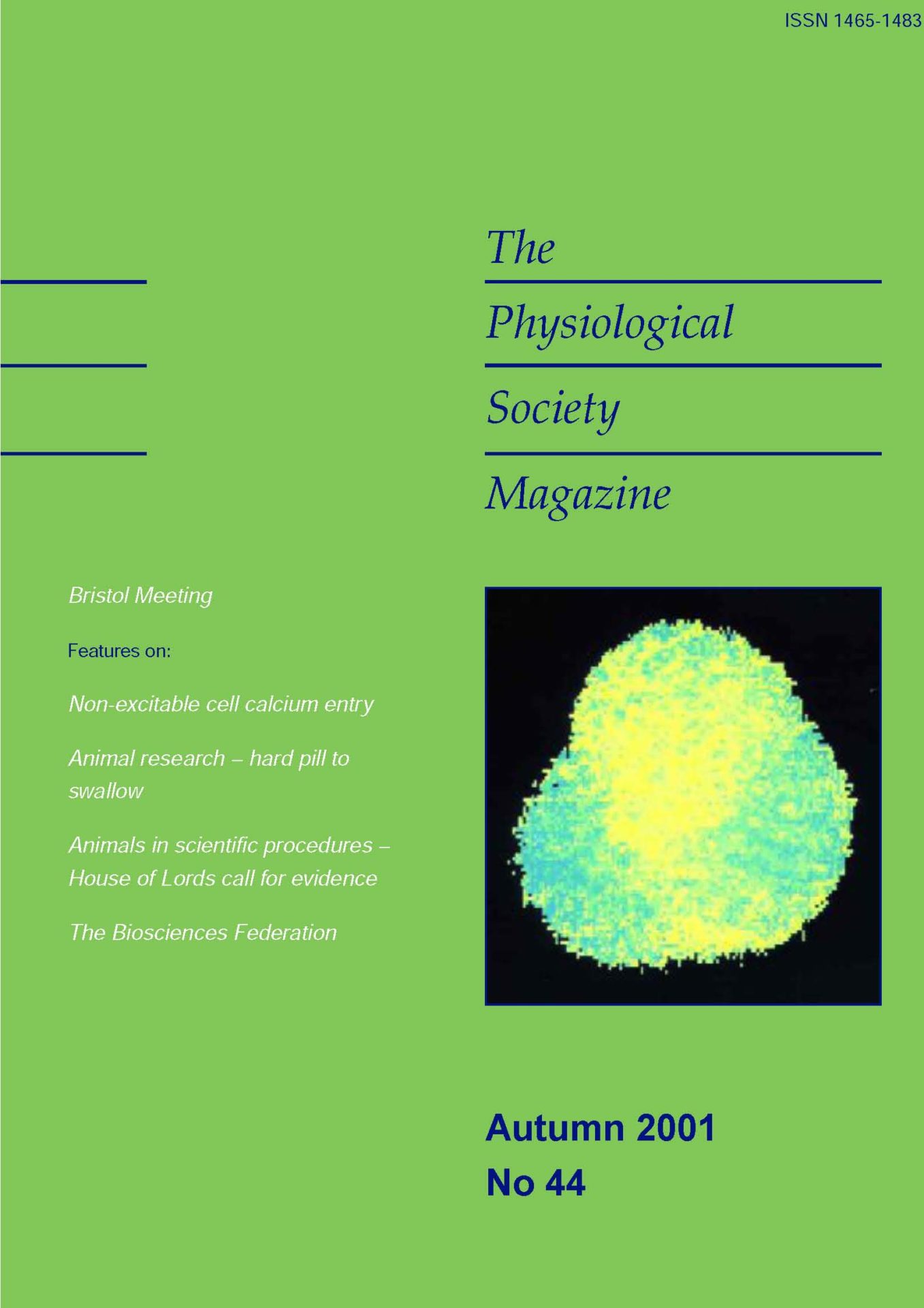
Physiology News Magazine
“WHO IS JACK STAT ANYWAY?”
Features
“WHO IS JACK STAT ANYWAY?”
Features
Mark Cain
https://doi.org/10.36866/pn.44.18
Here’s a question. Why can’t scientists communicate with one another (let alone with the public) without a bucketload of meaningless abbreviations?
How many times have you sat in a seminar when you realise the speaker has just used, without defining it, an abbreviation you’ve never heard of? And you’re lucky if it’s just one. Usually there are a whole bunch of abbreviations together. They come in packs, like buses do when you’ve been waiting in the rain for half an hour.
I hate abbreviations. I hate everything about them. I hate reading them in papers. I hate having to look them up in the huge lists printed at the start of papers. I hate hearing them in seminars. Especially when I’ve just woken up and realise I’ve missed a full ten minutes-worth of choice abbreviations.
To add to the confusion, there are now so many abbreviations floating about in the biosciences that one finds the same, or almost the same, abbreviation meaning two completely different things.
An example: SOCS can stand for “Suppressor of Cytokine Signalling” or “Store-Operated Channels”.
But of course, getting scientists to break off their love affair with abbreviations is a bit like asking a roomful of 40-a-day smokers to quit. We users have all kinds of reasons why we NEED our abbreviations. It saves space in the journals. It stops us having to repeat long incomprehensible phrases, which can now be replaced by long incomprehensible abbreviations. The abbreviations are a shared coded language, serving to identify “people like us” – the ones who can understand the abbreviations. And of course abbreviations are useful in social situations when we’re talking to other scientists (i.e.people like us).
So despite the efforts of a few abbrevation-phobic journals – like the British Journal of Pharmacology – it seems unlikely that we will ever be able to kiss abbreviations goodbye. So I suppose I’ll have to learn to love them. Which raises the question: do they have ANY redeeming features?
Well, once in a while. Mainly when they make you laugh. Because a really choice abbreviation can conjure up something entirely different from what the person who coined it intended.
For instance, an abbreviation may sound ugly – like the distinctly nasty-sounding ECAC (“E-cack”). Or illegal, like CRAC (“crack”). In fact there is a whole sub-family of abbreviations which could be confused with illegal substances, including ICE (interleukin-converting enzyme in scientific circles, a kind of amphetamine in parts of the USA) and JNK (“Junk”, no explanation necessary, or Jun N-terminal kinase).
Personally, I blame the biochemists for all this abbreviation business. Seriously, the rot started when the first biochemist was allowed to get away with referring to a protein by an abbreviation referring to its molecular weight on a gel. Because now we’re stuck with p53, p70, p120, p126 and innumerable others. Ever since that first p-something, biochemists have been the shock troops of abbreviationism. Biochemists LOVE abbreviations. And cell biologists are just as bad. Jak/Stat/Myc/Fos/Jun/Fyn. It sounds like a TV drama about flat-sharing young people with annoying nicknames. You can almost imagine the dialogue:
Hiya. Been out?
Yeah. Down the pub.
c-myc?
See Mick? Yeah – he’s coming over about six for a beer
c-fos?
See Foz? That no-mark? We’re not inviting him, are we?
What about Fyn?
Finn the Irish lad? Not likely, mate.
Nah. And we’re not letting that #!*! Jack Stat tag along either.
